Round Wallet,
Drei Berge
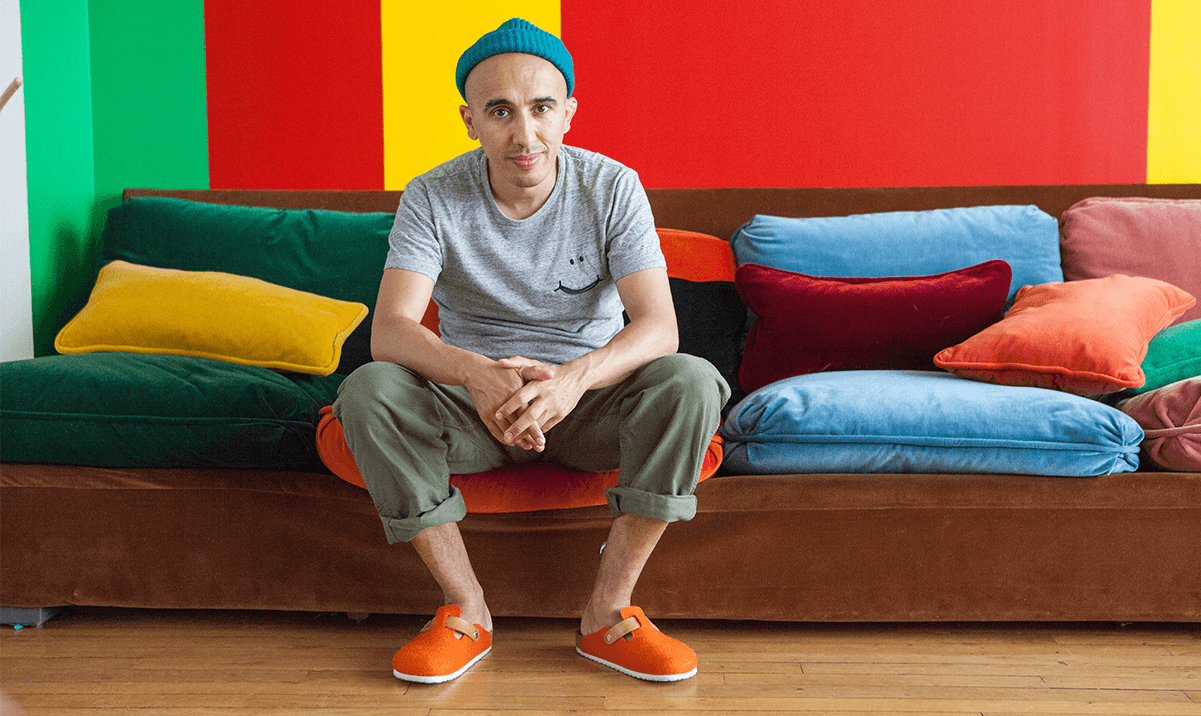
Creative Director
Our ethos at Semaine has always been to pick tastemakers that inspire our readers. People we believe are game changers, doers, people who do not settle for what’s expected and this week’s tastemaker, the French multi-tasking, multi-talented and borderline hyperactive Ramdane Touhami, is exactly that.
His path is not even close to being usual. He is the son of a French Moroccan apple-picker from outside of Toulouse and has been married to the willowy French aristocrat, Victoire de Taillac, for 12 years. Freely roaming with their three children between Tanger, Tokyo, India and France, Ramdane is not afraid of oddities. “L’enfant terrible” de la mode – as the French expression goes, “a person who behaves in an unconventional or controversial way” – started his career making T-shirts in high school. Exuberant and loud, he strived for refinement and perfection. By never restraining his mind or his creativity, he always followed his gut to create – from nightclubs to candles – he produced consistent and coherent projects.
It was in 2014 that Ramdane decided to revive Buly, the 19th century inspired apothecary, founded in 1787, specialising in scented oils, candles, creams and soaps. Entering the boutique, number six Rue Bonaparte in Saint-Germain des Prés, Paris, is like making a jump into the past. From the turquoise tiled floor to the warm wooden roof, each glass bocal contains colourful, unique and exotic concoctions.
“I visited about 130 different old apothecaries dating back from the 15th to the 19th century,” he explains. Each package is personalised, each product customized and each name an invitation to travel (Rhassoul, Mimi Senketsu oil, Azuki powder, Rosehip oil just to name a few examples). An extraordinary energy reigns in the office, which is located above the shop. The young team speaks Japanese and Korean, listens to funky music and are learning about calligraphy in their mandatory morning classes organised by Ramdane.
Ramdane arrives. He speaks the same way in which he works. No ‘chichi’, no unnecessary manners. He is direct, honest, to the point. There is no PR overlooking his shoulder, no sentence that seems rehearsed. His passion is communicative, his ideas clear and consistent, the coherence incredible. Most of all he comes across as so certain about who he is and what he is trying to achieve. He doesn’t try to follow the trends, he vows to create them. He thinks about something he would like to achieve, goes in depth in the understanding of this world and goes as far as possible to find the rarest and best products.
“I have a problem at the minute: I am like a child. If there is noise I can’t concentrate.”
He shuts down the doors, closes the windows. He finally sits in front of me. Let him take you to his world.
Semaine: Your love story for rebranding old companies started with Cire Trudon.
Ramdane: “I don’t really like the term ‘rebranding’. It’s always about the product before being about the brand. I’m not interested in the product on its own but on the entire market and sometimes you have to change and rethink the entire market. For example for Cire Trudon, we changed the size of the candles from 190gr to 270gr. We added the cloche to the candles. We focused on the smell rather than on the perfume. That had never really been done before and now everybody is doing it. People don’t really know candles but it’s really technical. I really like the historical background and looking into the technical work of wax and taking it to the next level, looking into vegetal wax for example. I was the first one to do that.The thing is to change the game and I really want to be a game changer. I met the owner of Cire Trudon in 2006, this man told me his company was not working very well. He told me that it had a history. I looked into it and discovered that it had been created in 1643. Have you read Cesar Birotteau from Balzac? I like that anecdote. Balzac takes a tribunal sentence, which is from a trial, involving an old perfume maker who got tricked in the middle of the 19th century. He was called Jean-Vincent Bully. He became Cesar Birotteau. I told him to give me total freedom and that I would do something incredible. Which I did.” [He smiles.]
Semaine: Could you explain to us the concept of retro-revolutionnaire?
Ramdane: “It’s the idea of having one foot in the past and one foot in the future. The idea to take what was best in the past and mix it with what is going to be the best. Look further than the others and create a combination that works…but it’s a difficult balance to keep. A lot of people fail at doing it. You need to have a vision yet have a real coherence. You need to come up with rules and not deviate from these rules. Once you deviate in terms of typography, material, then it’s wrong.”
Semaine: Your two last companies were linked to French Artisans. Can you tell us your link with them?
Ramdane: “I work a lot with artisans. I have a hysterical passion for artisan work. We went from a thing, from the middle of the 19th to the 20th century, when someone was creating a product they would create the product from A to Z. After the 19th century no one knows who made the object. It’s a brand, but one guy would make one bolt, the other one another bolt. Taylorism took away the pride of someone creating an object. I want to give back the credit to people. That’s what’s beautiful. The time may have passed but I like to make it alive again. I have been going to some obscure salons to meet the most knowledgable people on certain niche topics.”
Semaine: Are those rules the same for each project?
Ramdane: “Oh no! We have a new project coming up at the beginning of next year in food which is very different. Each project is different. There is no real predetermined modus operandi. We need to rack our brains a little. I mean, I say ‘we’, but it’s me. We just are a few people in my head…”
Semaine: How did you go from your first T-shirts, rooted in a more street style aesthetic to something so sophisticated and almost posh like Buly?
Ramdane: “First of all there is twenty years between the two. In twenty years you learn a lot. I have also lived in so many countries, and you learn so much from each experience. But if you look at my work there has always been a sort of coherence. To always look for the best. I racked my brain like I was telling you. I remember with the T-shirts for example, I created them when I was in high school and it was called Teuchiland. Everyone was making T-shirts at the time, but they were all done with the same base. We found this new material, produced in the states but that you could find only in Courtrais in Belgium, called oneita, and we went to look for them. They cost three times the price but we rocked that business because they were of better quality. This statement for quality has always been present in my projects.”
Semaine: What country influenced you the most?
Ramdane: “Japan had a big impact on me. I learned how to be rigorous and to be coherent and precise, to always look for the best. That really stayed with me. There is a Japanese Shintoist philosophy – I am myself a shinto – : called On Mono: the good product (based on the Monozukuri: The Art of Making Things. It emphasizes on Mono ‘the thing’ – We looked it up. It’s understood as the art, the science, the craft of making things.)
There are so many things there. I mean, I went to visit a paper maker next to Kyoto the other day that was more than 1000 years old. The craft there…I find it fascinating. I want to create the best product: I am happy to create the product, the man who is creating it is happy to make it and the guy who sells it is happy to sell it. For me if you don’t see that virtuous circle when you do something then there is no point of doing it.”
Semaine: Was humour and lightness important though?
Ramdane: “L’epicerie (our nightclub) was just so we could have fun and to be honest it was mostly to get girls and it worked. I was 21 or 22. And I was not on my own. We came from skateboarding, we arrived in the world of fashion. There were girls and homosexuals. We had a blast. It was really punk.”
Semaine: Can you tell us more about how you ended up in perfumes and scents. It doesn’t seem that obvious when we look at your career path?
Ramdane: “It was a bit by chance. And then…well if you bring me two perfumes I can tell you that one will work better than the other. You bring me fifteen I will tell you the one that will work the best. It’s not talent, I just kind of know what would work best with clients. I play a lot on olfactive memory. I like scents because they make you remember stuff. It plays on your memory and it goes straight to your heart. For the big brands the brief is almost always the same for the people who choose the perfumes, something along the lines of: She is beautiful, She is scandalous. She is sexy, She is going to kill it all and every man is going to turn around when she passes in the street. For me it’s the contrary like ‘Oh it’s sweet, it’s light, it reminds me of my holidays.’ It’s two different stories. It’s another perception. I go to places and we capture scents and then we recreate them in a lab. For example the inside of a Nike shoe.”
Semaine: What’s the second thing?
Ramdane: “There is also something about the story. Since 50, 60 years ago, perfume has been linked to someone or oneself. In the adverts it’s always the hot chick walking and everyone turning around in the street. I take more of the stand on saying that perfume is for yourself rather than for others. It’s not for the others to say if you smell nice or not. You do it for you. Also, I don’t trust people who smell of strong perfume. They must have a dodgy hygiene.”
Semaine: How do you choose the new products?
Ramdane: “Well, it’s the different people in my brain. We have high productivity. There are more than 750 products in our shop here. There are the atmospheric fragrances (scented candles and scented matches or Alabastron). The body care. The stuff to take care of your teeth… I want to create concrete products and I have the same interest in creating a toothpaste as finding out about beauty secrets from around the world. I went to South America to buy oils, to Australia, to Indonesia, to Japan; I went looking for women’s secrets. And there are a lot downstairs – it’s all about the crazy experience. Employees downstairs have to learn about Origata, and one of our employees Emiko has been trained by the Chief of Protocol of the Japanese Emperor. Everyone has mandatory calligraphy classes. It’s the coolest shop in the world. No such thing as competition.”
Semaine: I have heard your employees have special classes?
Ramdane: “For other people they are just sales people. I want the people who work for me to learn tons of amazing things. There are mandatory classes. Some have mandatory Korean classes. I want to elevate people. I don’t want them to come in ‘stupid’ and leave ‘stupid’. They come in unknowing about all these elements and leave a little bit more enlightened. It’s just obligatory.”
Semaine: You have quite an atypical path as far as education is concerned.
Ramdane: “I know I have an atypical path and I think I am bound to do this. I am not a fake but a real anarchist. A cop stops me, I might become crazy and end up in jail; nobody tells me what to do. I left high school telling my teachers to go and fuck themselves. That they didn’t understand anything. That they were lame. And when I did some consulting for big brands there were some huge clashes. I went into a big group, and just left the meeting rooms. I told them they were lame. And I actually think so. They are. So when you have that kind of attitude or that kind of philosophy it’s very hard. I never had proper payslips. You have to invent your own stuff. And if you are a big mouth then you have to invent good things. You know they are waiting for you around the corner to criticise you. You HAVE to do amazing things, it’s your sentence.
If you want to understand me better you have to read ‘The Anarchist Banker’ from Pessoa. It’s my life.”
Semaine: So what is it like now to have those people’s validation?
Ramdane: “I don’t really give a shit about validation but I just want to work hard and do my best. It is my validation regarding myself which I care most about. I think we are doing the most beautiful shop in the world in Seoul and I think we will do an even more amazing one for Buly after. I would call what I’m doing more of an obsession than a normal business case.”
Semaine: Is it hard not to get overwhelmed or distracted by all the different ideas?
Ramdane: “I’m like a pitbull. I don’t let go. My favourite part of the job is when the prototype box arrives. That’s what makes me live, to create reality. I’m obsessed with the idea of realisation. Of actually making things. You have an image and then boom. Here are the pictures of the shop in Seoul that I received this morning. It’s not finished yet but look at this beauty. Look at this green, at the windows…I designed them. From the typographies on our labels, to the boxes, from the wood chosen in our next Seoul shop, there is no level where I am not involved nor obsessed with.”
Semaine: What’s the most important thing when you are an entrepreneur?
Ramdane: “I am not an entrepreneur. My objective is not capitalisation. I am a creative. I want to create stuff. Or maybe I am something in between. You have to dig pressure, maintain it and to keep it. You need a lot of energy but to remain relaxed under pressure. I don’t really care about holidays. When I see people on instagram with their two feet in the sand with the caption ‘Finally on holidays!’ I’m like what? I find that crazy.”
Semaine: It’s like a play downstairs.
Ramdane: “Everything is like a theatre play, with the costumes, the way people talk. Every morning we open on the stage and everyone knows their lines. Let’s do this. Everything has a story here. The bottle, the label, the floor, the roof, the wall. Look at how beautiful it is. Some people don’t like fat people, I don’t like ugly places. I could never think of working 10 to 15 hours in an ugly place. No wonder you become depressed.”
Semaine: Collaboration?
Ramdane: “Oh I stopped collaborations a long time ago. That’s for losers or if you don’t have your own ideas. There is always a winner in a collaboration and it’s never the one you think. Two stupid people doesn’t make one smart one, it just makes two losers. I don’t need to, I don’t like the idea. I could do one product for others but that’s it. I work on my own. I have my team but ideas come on their own. So then I don’t have to split the cup. A week at yours, a week at mine.”
(Someone steps into the room and looks at the combs.)
“Look at this comb. You think it’s a normal one because the cut is traditional but not one is the same, we made 54 different ones. I designed with two sorts of acetate. (Acetate is vegetable plastic. But no one uses it because it’s too expensive.) I make people buy stuff they didn’t know they wanted to buy. Like a really beautiful comb, which is the actual concept of luxury – contrary to the bullshit that has been created by the industry.”
Semaine: Why do you think they started to create bullshit?
Ramdane: “Financiers in a city like London…they only talk about money and real estate: ‘Go and create stuff guys’. And not just jewellery like all the same girls there who then go and work in contemporary art. They all do the same things…the world is so big and you just see them all in the same places…”
Semaine: Uniformisation?
Ramdane: “Yes! But it’s because they all watch the same images whether on Instagram or Pinterest or whatever. They all feed off the same things so of course they are all stuck, they all shit the same shit. It’s been twenty years that it doesn’t move.”
Semaine: Anyone that inspires you then?
Ramdane: “Since Adolf Loos in the 1900s? Mmmh I don’t know.” [He laughs.]
“Jean-Yanne the French comic. He was like me. He said to everyone to go and fuck themselves. He was the most talented. Of course there a million people doing great stuff but I am not the kind of person to idolise anyone. The contemporary art world, and I say this because I worked with them. Olalaaaaa. They are pissing in the sea (literal translation of a great French expression). I laugh so much. My best friend works in that world. And we both laugh. Except that he is a millionaire. Multi-millionaire. I just want to be proud of my product. That’s it.”
Semaine: You said there are two places where you can’t find arabs and blacks, in skiing stations and in the cosmetic industry.
Ramdane: “Yes it’s true. There are not a lot of people. Even in fashion at the time. There was Azzedine Alaia, a tiny gay Tunisian guy. The guy is crazy I really like him. After there was Hedi Slimane but he said he was Swiss-Tunisian….”
Semaine: You have lived everywhere with your wife.
Ramdane: “Yes, we have been everywhere. We are moving to Tokyo now. Sometimes I just wake up and I decide I want to get the hell out. But right now it’s because I smell trouble in Europe. Bombings, the extreme right… I am not going to wait until the blonde gets elected (he is referring to Marine Le Pen). I don’t think there is an amazing future for a guy like me, with my skin, in France or in Europe right now. Everyone is becoming Fascist. I’m not very interested.”
Semaine: So Japan?
Ramdane: “Yes Japan. I lived there already and I speak Japanese. I learned at the end of the 90’s beginning of 2000. It’s a rigor that I enjoy.”
Semaine: How did you teach your kids?
Ramdane: “It’s a question of culture. You just tell them what’s interesting or not. They are total gypsies, they don’t really feel French or from somewhere in particular, they are real children of the world. Every time I am bored, Every time the routine starts to set in, I want to get the hell out. Here again, another obsession.”
Semaine: No sentimentalism for places?
Ramdane: “It’s not about the place, It’s about the people. I could be in the shittiest place in the world but if I am with my best friend I do not give one damn. Or be in the most beautiful place with an ass. They are magical places but it depends on the people you are with. Some of the most sordid places are the places I had the most fun.”
Semaine: Do you work with your wife?
Ramdane: “No. I work on the same projects with my wife but not together or from the same place. Otherwise we would get on each other’s nerves all the time. Our relationship works in a very mysterious way. We are like cats and dogs. On Buly, I would work on the outside and her on the inside. I work on the product and the interior and she would work on the texture of the oils and the cosmetic products. We don’t walk on each other’s feet. We fight sometimes but we trust each other deeply. She has an aristocratic beauty, everything suits her, and she is beautiful. It helps. In our homes I do the communal parts and she take care of the private, of the rooms. But really it’s just a very natural movement, we just know, it’s been sixteen years…”
In such a scripted world where algorithm and marketing strategies based on numbers is at the heart of the luxury world, it is fascinating to meet someone whose aim is slightly different. We also kind of wish we would have the same nonchalance about life and were able to find an equilibrium in the unknown. What’s next? I wanted to ask him. Well you know what, maybe we shouldn’t know and keep on being surprised by this hyperactive creative. We are definitely ready to bet on whatever is next.
By Marie Winckler for Semaine.
“Tokyo, Tanger, Jaipur…I feel at home in different places around the world. It depends on the mood, the time, work, the opportunities. I can wake up one morning and decide to get the fuck out like I told you.”
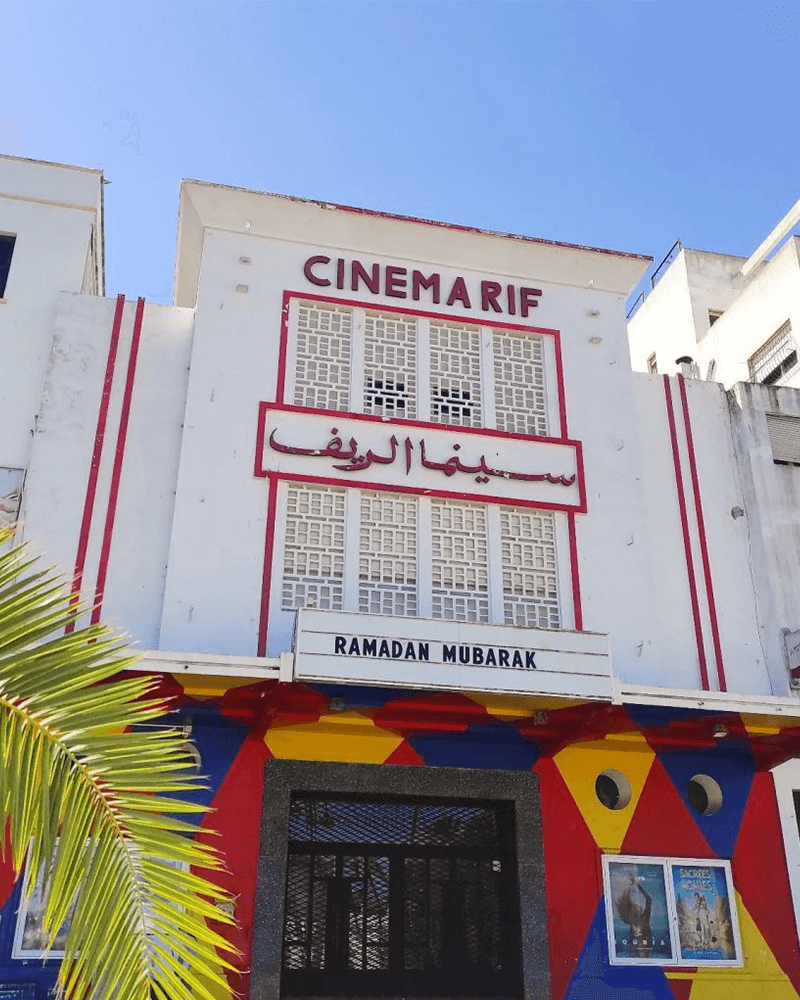
A hub for the distribution and preservation of films in Tangier, dedicated to advancing the cause of preserving and producing film heritage.
Place du 9 Avril 194, Médina Tanger,
Morocco
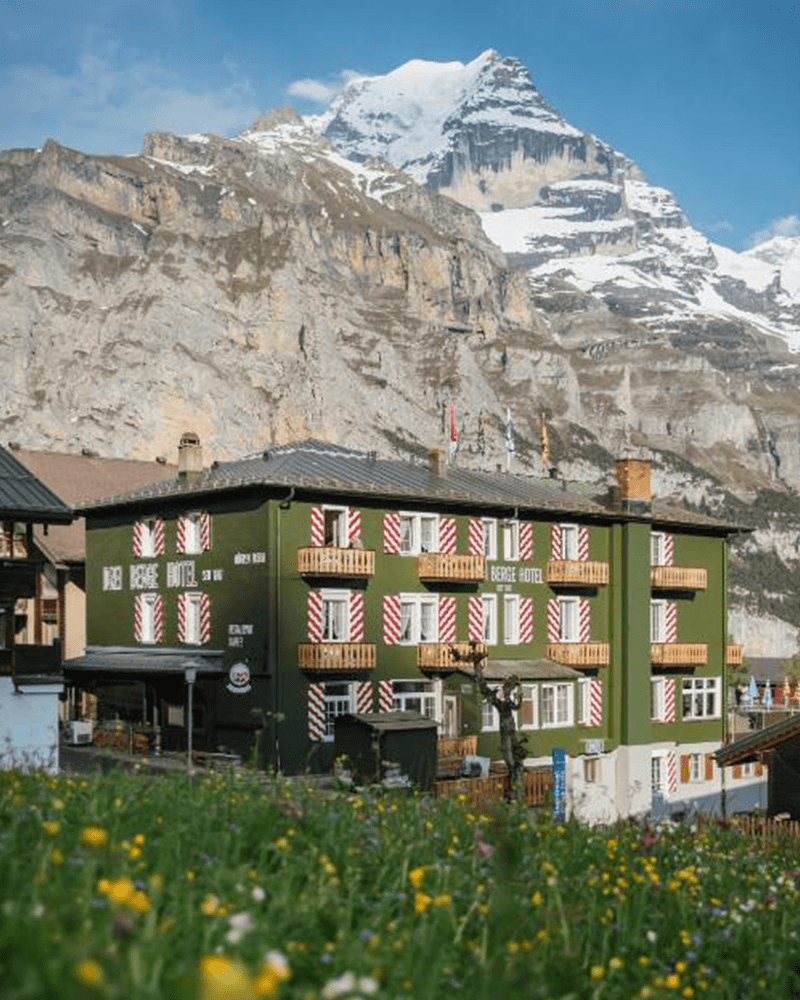
The refurbishment of the building, which started in 2023, aims to honour the materials while infusing a modern flair into the existing furniture. This includes synchronized interior and exterior woodwork, embossed carpets, high-quality household linen, custom-made cosmetics, and distinctive vintage decorations.
Lus 1050A, Mürren,
Switzerland
“I don’t read a lot…no…12 to 13 books a month maybe?”
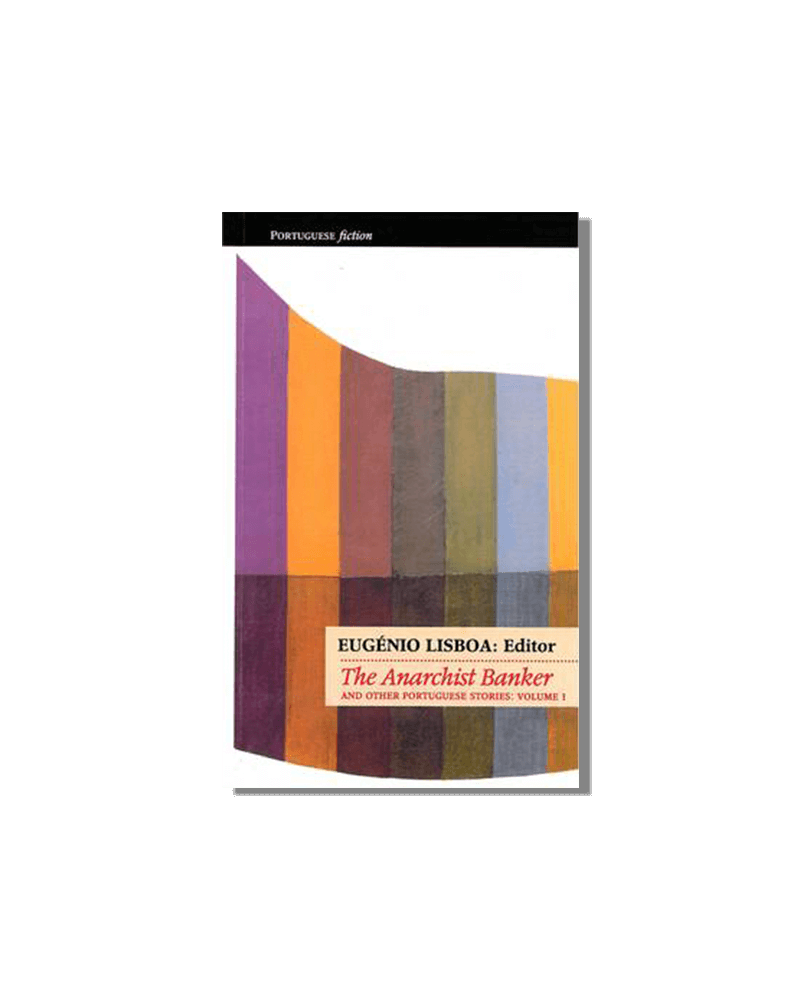
£12
Curated to showcase the richness and diversity of Portuguese literature, the collection features short stories which provide an insight into the country's literary landscape and cultural heritage.
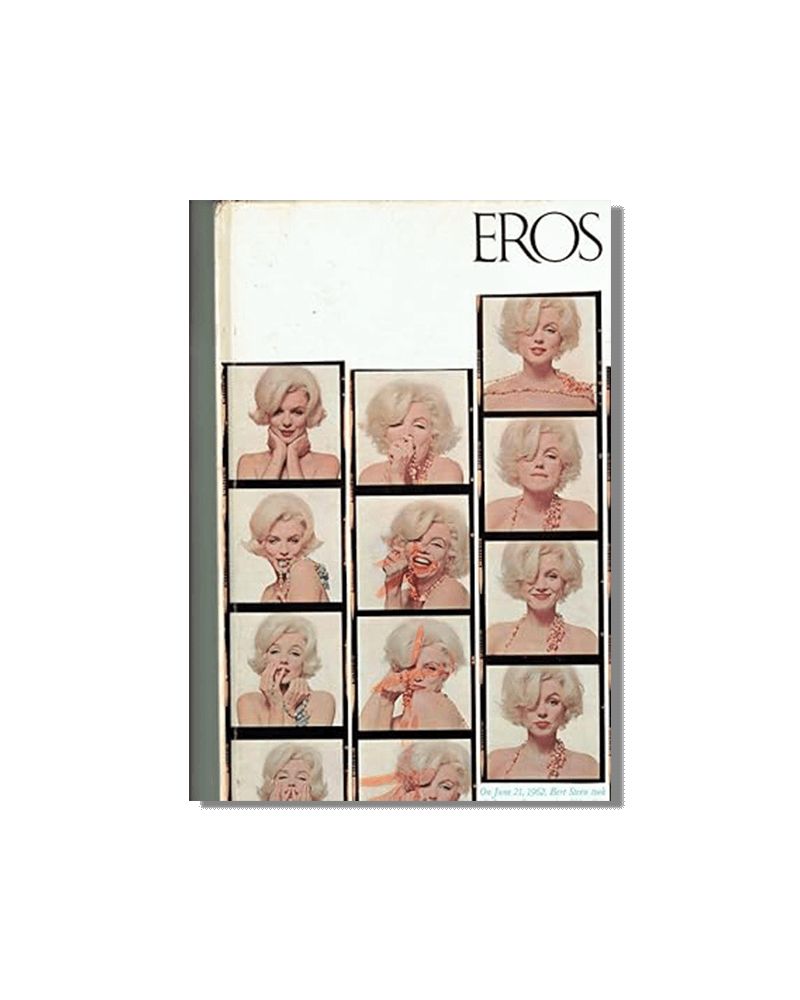
£41
This part of the volume features the final studio images taken of Marilyn Monroe, six weeks before her passing, which were captured by Bert Stern.

Become a member today to enjoy all our Tastemakers address recommendations on our interactive travel guide world map!
SUBSCRIBE NOW